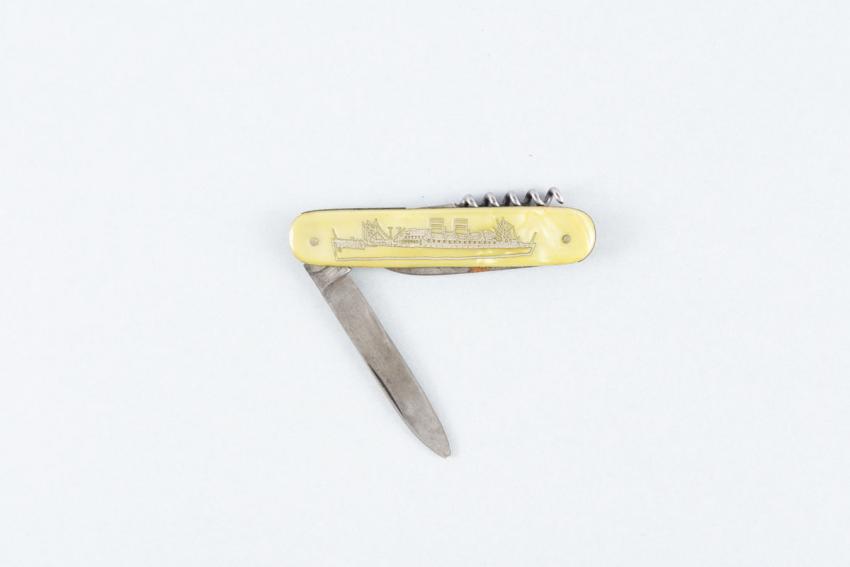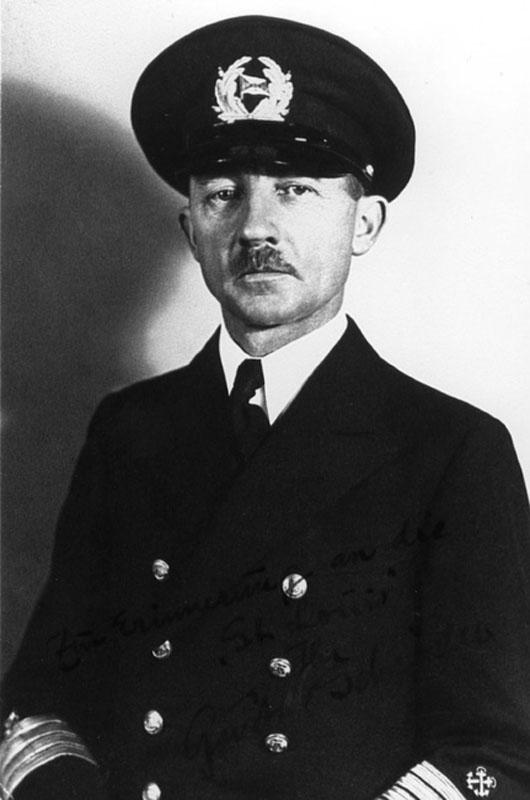Towards the end of the 1930s, Germany actively encouraged the emigration of Jews from Germany and Austria. After the Kristallnacht pogrom in late 1938, there was a steep rise in the number of Jews wanting to leave, but the nations of the world restricted the number of Jewish refugees that they would accept, thus effectively limiting emigration from the Reich.
On 13 May 1939 the "St. Louis" sailed from Hamburg, Germany carrying close to 1,000 Jewish refugees. The ship made its way to Cuba, a country for which most of the passengers had managed to obtain entry permits, but Cuba decided not to honor these permits and refused to allow the ship to dock. After some negotiation, approximately thirty individuals were finally allowed to disembark. The remainder was forced to sail back to Europe, after both the United States and Canada refused to absorb the refugees.
Captain Schroeder, who worked tirelessly from the beginning of the trip for the wellbeing of his Jewish passengers, did all he could to delay the return of the ship to Germany, even working on a plan to scuttle the ship off the British shore so that the authorities would be forced to help. Finally, a number of European countries agreed to accept refugees and so, 181 passengers were allowed into the Netherlands, 224 to France, 228 to Britain and 214 to Belgium.
In 1957, Schroeder received a federal award of merit from the German government for his efforts on behalf of the passengers of the ship. He passed away two years later.
One of the ship's passengers was Rose Goldreich from Vienna. She was one of those allowed into Belgium, where she was hosted in Antwerp by a Jewish family. Before leaving for the United States, she gave her host's young son the penknife that she had purchased as a souvenir on the "St. Louis".
"My parents, Aaron and Blima Kreitman hosted an Austrian woman for a day and she ate with the family [...later] she came to thank my parents and to tell them that she was planning on sailing to the United States as her visa allowed. She gave me the penknife that she had bought on the "St. Louis ". The penknife stayed with me thanks to my mother. I know that before we fled, my mother left documents and personal effects with a neighbor. She must have included the penknife because of its significance even then, and I only saw it again when we were liberated by the British in 1944."
Maurice Kraytman on donating the penknife to Yad Vashem.
On March 11, 1993, Yad Vashem recognized Captain Gustav Schroeder as Righteous Among the Nations.
Yad Vashem Artifacts Collection
Courtesy of Maurice and Odette Kraytman, Belgium










